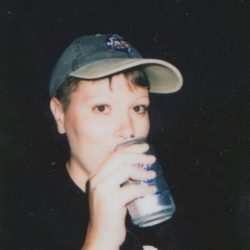 Euan Brown
Euan Brown
Euan Brown studied at the Massachusetts College of Art and Design. Euan primarily works in illustration and digital art, and hopes to become an illustrator and comic book creator. Euan is interested in online creative content and the value of online discussion. At Youth and Media Euan has created illustrations that were then paired with YaM reports, briefs, and slides.
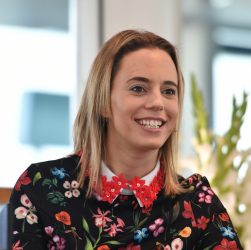 Sandra Cortesi
Sandra Cortesi
Sandra Cortesi is a Fellow at the Berkman Klein Center for Internet & Society at Harvard University and the Director of the Youth and Media project. She is responsible for coordinating the Youth and Media's policy, research, and educational initiatives, and is leading the Digitally Connected collaboration between the Berkman Klein Center and UNICEF. At Youth and Media Sandra works closely with talented young people and lead researchers in the field as they look into innovative ways to approach social challenges in the digital world. Together with Berkman Klein Center’s Executive Director Urs Gasser and the Youth and Media team, she focuses on topics such as inequitable access, information quality, risks to safety and privacy, skills and digital literacy, and spaces for participation, civic engagement, and innovation. Sandra supports the following Berkman Klein projects and initiatives: Youth and Media, Student Privacy Initiative, Digital Problem-Solving Initiative, Digital Literacy Resource Platform (DLRP), Harmful Speech Online, and Coding for All. See publications here.
 Urs Gasser
Urs Gasser
Urs Gasser is the Executive Director of the Berkman Klein Center for Internet & Society and Professor of Practice at Harvard Law School. Urs has written and edited a number of books on digital technology and is the co-author (with John Palfrey) of Born Digital: How Children Grow Up in a Digital Age. His current Youth and Media research projects explore how youth engage with emerging technologies (such as AI), how we can build healthy communities and deal with cyberbullying, and how we address some of the opportunities and challenges that emerge when youth engage with the digital economy (e.g., how youth participate in online activities that cultivate social, cultural, and economic capital).
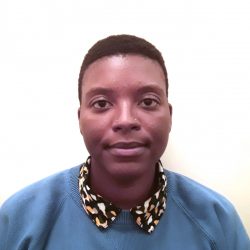 Maya Malik
Maya Malik
Maya Malik, MSSW earned their Masters of Science in Social Work from the Columbia School of Social Work, focusing on International Social Welfare and Rights for Immigrants and Refugees through program design, research, and evaluation. Mx. Malik previously worked as a Training and Communications Coordinator for the Women’s Health Unit (WHU) at Boston Medical Center supporting the multi-state, NIDA funded, HEALing Communities Study. Throughout their academic career, Maya has taught low income youth of color in different communities in the United States and India utilizing arts-based learning techniques and created interactive educational programming to address the negative effects of poverty, trauma, and structural oppression on attainment for students in marginalized communities. Maya is entering McGill School of Social Work’s doctoral program this fall to research how to utilize arts based Youth-Led Participatory Research (YPAR) methods to work with young Black American girls who have been justice-involved to improve educational intervention programs. Here you can find blogs written by Maya about their time working in rural India.
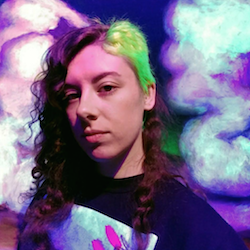 Rebecca Smith
Rebecca Smith
Rebecca Smith is an artist and animator currently based in Boston, MA. Born and raised in the north shore of Massachusetts, she graduated from the Massachusetts College of Art and Design with a BFA in animation in May 2019. She has been inspired all her life by visual media including art, film, and fashion, and has a passion for storytelling. She brings these inspirations together in her animation, which uses bright colors and contrasting textures to tell stories about coming of age and finding a place in the world. She focuses primarily on 2D-animated and character-based work, but also uses mixed-media techniques that fuse digital and traditional media. Her work has been featured in several shows at MassArt including the ReStore show (2017), the Animation Sophomore/Junior Show (2017), the Animation All School Show (2018), and Squealing Pegs (2017&2018). Outside of MassArt her work has shown in the MAST film festival (2019).
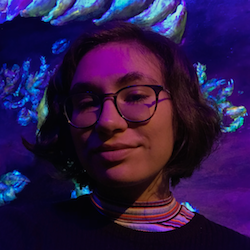 Claudia Thomas
Claudia Thomas
Claudia Thomas studied animation at Massachusetts College of Art and Design. She is an animator and illustrator who works digitally in both 2D and 3D. She is fascinated by the endless artistic possibilities created by digital media and the Internet and hopes to explore them in her work. At Youth and Media, she creates illustrations and animations to accompany reports and other media. See some of her illustrations at https://www.claudiathomas.art.
In close collaboration with:
- Lionel Brossi
- Christian Fieseler
- Andres Lombana
- John Palfrey
- Leah Plunkett
Other:


